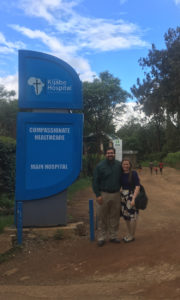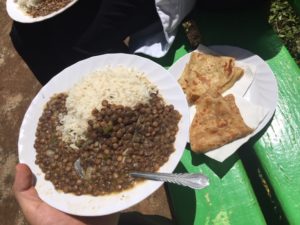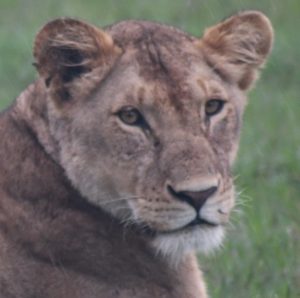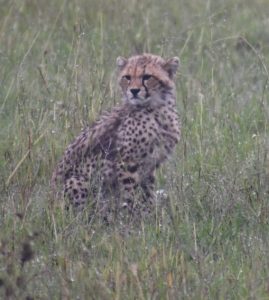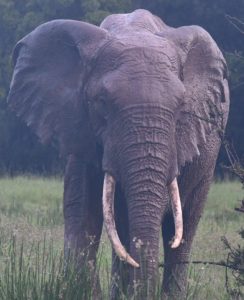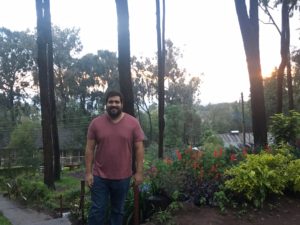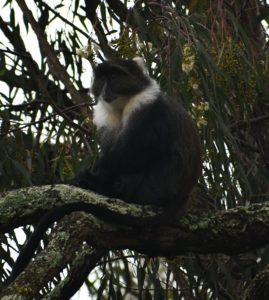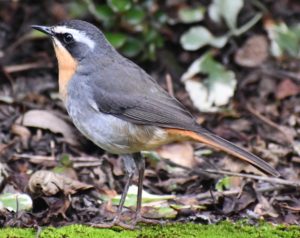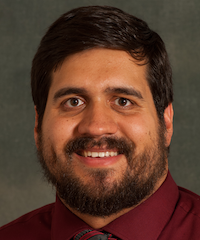Final Post
December 20th, 2019 by Daniel Russo
Posted in Uncategorized|
Tomorrow we leave for the airport. I am already getting a little sad about the prospect of leaving. We have already started with a few goodbyes to people we won’t see today. I also made the mistake of checking the weather at home. While it is currently 64 degrees and climbing here, at home it is 14 degrees with a high of 37. That will be an adjustment.
Yesterday I had full oversight of my team. My attending was available by phone, but for all intents and purposes I was the attending. Of course as soon as I walked upstairs to start rounds I was told one of our patients had just died a few minutes ago. Not a great start to the day. I learned that here when a patient dies the next of kin is notified that they need to come in to the hospital, but is not told over the phone that the patient has died. How this results is that later in the afternoon I was back on the floor and was told that the patient’s daughter was sitting on the now-vacant bed and had some questions. The chaplain accompanied my intern and me to the counseling room and we divulged the death to the daughter. The death had not been unexpected as he had had a massive stroke and had not had a GCS greater than 6 in the last two weeks. After a brief discussion of the medical details leading to his death and our condolences to the daughter, the conversation shifted to next steps. These questions were handled by the chaplain, and I found pretty interesting. The first step was the family had to clear the bill. After that point the next of kin could come and take the body; they would also be responsible for setting up transportation of the body. In the event that the family could not immediately clear the bill, the body would be held in the morgue until they were able to do so but at a cost. There was initially some turmoil regarding whether the daughter could take the patient’s body as his wife was still alive and not present. Ordinarily only the next of kin could recover the body but given that his wife was old, frail, and lived 6+ hours away, the issue was escalated up the nursing supervisor chain and when I ran into the daughter later in the day she confirmed that they were going to release the body to her.
The remainder of my afternoon was spent running family meetings with my intern and a member of the palliative care team. Both meetings involved the families of patients with metastatic cancer regarding goals of care and treatment options. In both cases the families were very hesitant to change code status to DNR/DNI. I did my best to explain the natural history of their family member’s illness and its terminal nature as well as the likely futility of escalating care to ICU or attempting resuscitation should they code. However neither family made any indication of being ready to change code status until my intern took over the conversation and outlined the costs of ICU care. What is usually a subconscious or unspoken conflict in the US between the desire to treat family members with every available treatment and the limitations of financial resources is here a deliberate conversation. In the States, when talking about code status I can’t imagine bringing up the costs of advanced intervention as that would seem like I’m giving unjust care to our poor patient population; luckily, discussions of medical futility and the like are usually enough for families to understand the reality of the situation. Here, where medical literacy is poor, families seem to respond less to abstract hypotheticals but much more strongly to concrete concepts such as cost.
On a brighter note, I have been visiting the patient I had performed the spinal tap on (see earlier post) in the HDU. The day after the tap he was already more awake and was able to shake my hand and seemed to attempt to speak (in Swahili). Since his transfer to the HDU they have performed serial taps and he continues to slowly improve. It seems he won’t need a shunt and transfer to another hospital after all. He is definitely one of the patients I will be wondering about when we get back home.
Last night we attended the advent night at Dr. Nguyen’s house. The theme of the night was cookie decorating so it seemed all the families with children in the complex. It was nice to see all the kids having fun together. It reminded me of stories and pictures my parents have shared with me of when we lived on air force bases when I was a child. The cookies were probably the most delicious thing I’ve had since we arrived.
Now today is our last day at Kijabe Hospital. It’s going to be difficult to leave this place. We’ve made a lot of friends and learned a lot. I think this is a viable option for recurrent short term mission trips as it is relatively easy to navigate the inpatient service with the assistance of all the interns. In addition, should we ever transition to long-term missionaries, with its perfect climate, abundant resources and the Rift Valley Academy on site this would be a hard place to beat.
Tomorrow we will leave early in the morning for Nairobi. We will make a couple quick stops for fun at the Giraffe Centre and the Elephant orphanage at the Sheldrick Wildlife Trust before grabbing a bite to eat at the mall (hopefully at Urban Burger to help with our assimilation back to American culture) and heading to the airport. 23 hours later, we will be home.
